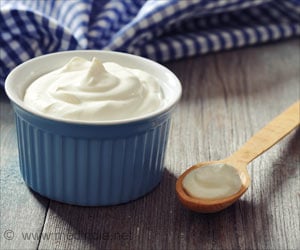- ORS day celebrated on July 29 every year marks the importance of using ORS to treat and prevent dehydration.
- The second main preventable cause of death in children under 5 is diarrhea.
- ORS is a cheap and easily accessible remedy to prevent dehydration due to excessive loss of fluid and electrolytes.
ORS Day 2017
ORS day is celebrated to highlight the importance of Oral Rehydration Salts (ORS) and its significance in the treatment of dehydration. ORS is a cost-effective method to prevent dehydration especially during diarrhea. Acute diarrhoeal diseases which affect infants and young children are a threat as they increase the risk of mortality. The World Health Organization claims that diarrhoeal disease is the second leading cause of death in children under five years old. Poor sanitation and hygiene, are the major reasons for diarrhea in children. A few episodes of fluid loss and electrolytes from the body on the form of diarrhea can cause dehydration. In order to prevent this, ORT, the treatment which involves the administration of ORS, is necessary. After extensive research, the WHO recommends ORS as the first step in the treatment of diarrhea-related dehydration.ORS: The History
Originally developed in the 1940’s, ORT came into practice in the 1970’s. Oral glucose saline solution was tried on two cholera patients by Captain Philips of the US army. Later, the modern oral rehydration salt (ORS) solution was developed. Scientists working at the Cholera Research Laboratory, Dhaka, and the Infectious Diseases Hospital, Calcutta, contributed to the development and the efficacy of standard ORS which was first demonstrated during 1965-69.The same was tested among Bangladeshi refugees during the Bangladesh liberation war (1971-72). ORS was also tested in children with diarrhea in the late 1970’s. The WHO in 1978 launched the global diarrheal diseases control program with ORS as the short-term treatment to reduce the risk of mortality.
Oral Rehydration Therapy (ORT)
ORT is a first line treatment for dehydration and is also used to prevent dehydration. Excessive loss of fluids and electrolytes in the body causes dehydration. Conditions like vomiting, diarrhea, and diseases which cause diarrhea such as bacterial or viral infection, cholera, food poisoning, unhygienic feeding practices can increase the chances of dehydration.Unless the fluid and electrolyte loss in the body is replenished, the affected person may even be at risk of death. Even while fluid is lost through diarrhea or vomiting, water continues to be absorbed from the gastrointestinal tract. The WHO specifies indications, preparations and procedures for ORT.
Oral Rehydration Salts
Oral rehydration solution and the oral rehydration salts used to make it are both often abbreviated as ORS.The formula for ORS recommended by WHO and UNICEF contains:
| Composition of ORS | Grams/liter |
| Sodium chloride | 3.5 |
| Glucose, anhydrous | 20 |
| Potassium chloride | 1.5 |
| Sodium bicarbonate | 2.5 |
Facts About ORS
- It is a combination of sodium, potassium and citrate salts mixed in clean water.
- It is suggested by the WHO to be used for the baseline treatment of diarrhea in infants.
- It should be given when the child has passed three or more loose stools in a day.
- Zinc is also added along the standard ORS solution. Children over 6 months of age are given 20 mg of zinc per day (tablet or syrup); 10mg are recommended for children less than 6 months of age.
- After every loose stool, 1/4 to 1/2 of a large (250-millilitre) cup of the ORS should be given to a child under the age of 2 years.
- ORS sachets are commercially available but they can also be prepared at home. Mix together 6 teaspoons of sugar, half tea spoon of salt in a liter of clean boiled water.
- History of development of oral rehydration therapy - (https://www.ncbi.nlm.nih.gov/pubmed/7530695
- ORS: The medical advance of the century - (https://www.unicef.org/sowc96/joral.htm)












